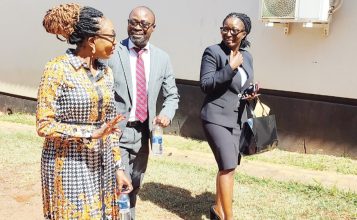Mines and minerals Bill under scrutiny
The Mines and Minerals Bill, which is yet to be tabled in Parliament, has come under scrutiny from civil society organisations (CSOs) who claim it has failed to incorporate some key recommendations.
Although government completed consultations and developed adraft Bill in 2015, which was submitted to the Ministry of Justice andConstitutional Affairs in August the same year, the Bill was yet to be tabledin Parliament.

Among others, the Natural Resources Justice Network and Publish (NRJN)-What You Pay Malawi, a grouping of 36 CSOs, has since urged lawmakers not to pass the Bill in its current proposed form.
In its observations, the grouping says that the current setup of the Mineral Resources Committee–a committee to oversee the issuance of licences to companies and individuals–is prone to abuse, saying it should rather be public or at least open to Members of Parliament and non-governmental organisations and that the meeting minutes be made public.
On contract transparency, the CSOs are asking that all licences and contracts should be public for easy monitoring of corporate compliance to avoid backdoor deals as currently it is voluntary through the Malawi Extractive Industries Transparency Initiative (Mweiti).
“A provision should be included in the Bill, otherwise we put contract transparency at risk if a less favourable administration is in place or we were to leave it,” reads the position paper in part.
Weighing in on the Bill, an analyst in the extractive sector, who also sits on the Mweiti, Rachel Etter-Phoya said there is need for all company reports related to the obligations under the Environmental Social Impact Assessment, Environmental Monitoring Plan, Resettlement Action Plan, and any other plan or report relating to the environment and qualified community to be made public.
But in an interview on Tuesday, Ministry of Natural Resources, Energy and Mining spokesperson Sangwani Phiri maintained that the Bill will be tabled in its current state because it has already passed through all stages, including Cabinet assessment.
He said the Bill is an improvement of the existing mining laws some of which have been annulled, amended and improved accordingly to suit the current environmental trends, socially and environmentally.
“How could they propose those recommendations now when the Bill has already passed through all the processes? They are acting like government cannot proceed with any work in the sector unless they are consulted. We took their recommendations on board during the consultations,” said Phiri.
If approved, this law will replace the 1981 Mines and Mineral Act which experts say has failed to deal with emerging issues facing the sector.
The proposed Bill which is divided in 20 parts, seeks to regulate the development of mineral resources of Malawi through adherence to sustainable development principles.





